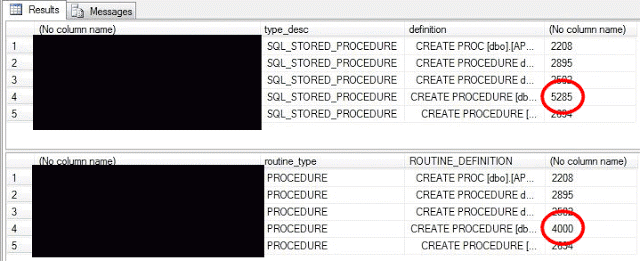select s.name +'.' + o.name, o.type_desc, m.definition
from sys.sql_modules m
inner join sys.objects o on m.object_id = o.object_id
inner join sys.schemas s on s.schema_id = o.schema_id
where definition like '%dataserver2%'
order by o.name
select r.SPECIFIC_SCHEMA + '.' + r.SPECIFIC_NAME, r.routine_type, r.ROUTINE_DEFINITION
from INFORMATION_SCHEMA.routines r
where ROUTINE_DEFINITION like '%dataserver2%'
order by ROUTINE_NAME
select s.name +'.' + o.name, o.type_desc, m.definition
from sys.sql_modules m
inner join sys.objects o on m.object_id = o.object_id
inner join sys.schemas s on s.schema_id = o.schema_id
where m.DEFINITION like '% AND OwnerID = @OwnerID%'
order by o.name
select r.SPECIFIC_SCHEMA + '.' + r.SPECIFIC_NAME, r.routine_type, r.ROUTINE_DEFINITION
from INFORMATION_SCHEMA.routines r
where r.ROUTINE_DEFINITION like '% AND OwnerID = @OwnerID%'
order by ROUTINE_NAME





